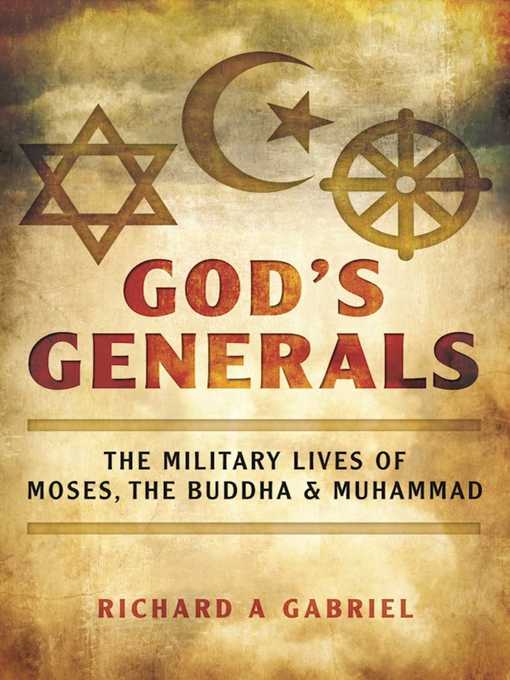
God's Generals
The Military Lives of Moses, the Buddha, and Muhammad
کتاب های مرتبط
- اطلاعات
- نقد و بررسی
- دیدگاه کاربران
نقد و بررسی

November 14, 2016
Royal Military College of Canada professor Gabriel ties together a history of ancient warfare with the rise of Judaism, Buddhism, and Islam in this somewhat muddled work. Despite the title, the biographies of Moses and Buddha disappear behind long discussions of military tactics and historical context. The coverage of Muhammad adheres more closely to his life and declares that his military reforms created the first guerilla fighting force. In every case, Gabriel is at pains to counter traditional religious biographies: his Moses is a severe and genocidal authoritarian, Buddha is a successful soldier rather than a pampered recluse, and Muhammad’s visions are the effects of malaria. This axe-grinding leads to intriguing theories, such as that Buddha’s asceticism is a typical response to PTSD and Moses’s shining face might arise from disease scars. Such discussions will disappoint the faithful but satisfy those who seek strictly secular explanations of the singular nature of these messianic figures. A brief final chapter traces the religions’ continued connection to violence, strangely arguing that Judaism’s lack of centralization defused violence but Islam’s similar structure allowed a continued support for it. Military buffs and skeptics will enjoy this, though readers seeking insights into the religious motivations of these men should look elsewhere.

November 15, 2016
Religions may be peaceful, but their founders usually couldn't be. Moses, leading some 25,000 migrants away from and then through hostile territory, was obliged to guard both rear and front constantly and to fight dissidents within, predators without, and dwellers resisting newcomers. Given his vision of the ummah, or worldwide Islamic community, Muhammad had to forge a military force to extend and protect it. Prolific military-historian Gabriel argues from scriptural explication, nonscriptural sources, and the insights of archaeology, cultural anthropology, and modern history that both leaders met their military challenges brilliantly. He does the same with the Buddha, who, despite the legend of his sequestered upbringing, was obliged by his family's status to be a warrior in a very violent era and almost certainly conceived Buddhism in revulsion, powered by what is now called PTSD. As interesting as Gabriel's martial portrayals of his subjects is the shaping contention that monotheism is particularly conducive to violence. Gabriel's accessible style and scholarly propriety make this volume as convincing as it is eye-opening.(Reprinted with permission of Booklist, copyright 2016, American Library Association.)

























دیدگاه کاربران